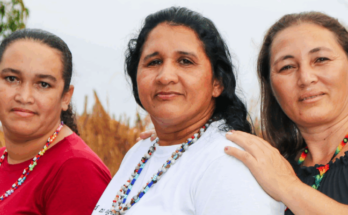“Barely enough”The world climate conference could end without a deal
At the World Climate Conference, more than 80 countries called for clear plans to shift away from coal, oil and gas. But a strong opponent blocks. Hosts Brazil’s original schedule could not be kept, and negotiations have now been extended.
Due to disputes over the future use of fossil fuels, there is a risk of failure at the World Climate Conference in Belém. Because the 200 participating countries did not reach agreement on the planned end of the event, negotiations were extended. Federal Environment Minister Carsten Schneider said the new draft resolution presented Friday morning was “far from” sufficient. EU Climate Commissioner Wopke Hoekstra did not rule out the possibility that the conference would end “without a deal”.
“What exists now is unacceptable,” Hoekstra said. It cannot be denied that “we are truly facing a no-deal scenario.” Schneider stressed that the new draft resolution “cannot be left to chance.” “These negotiations will still be difficult,” explained the SPD politician. The planet needs “concrete steps: expanding renewable energy, getting out of fossil fuels,” said the Environment Minister.
The new draft resolution contains multiple commitments to the 1.5 degree limit and emphasizes the need to drastically reduce global greenhouse gas emissions. However, in those seven pages there is not a single mention of the word “fossil”, let alone a roadmap for switching away from coal, oil and gas as requested by Germany and many other countries.
Before the new draft was published, around 30 states threatened in letters to the COP president that they would not agree to a decision without the exit roadmap. “In its current form, the proposal does not even meet the minimum requirements for a credible COP outcome,” including Germany, France, the UK and Colombia. According to a negotiator who asked not to be named, China, India, Saudi Arabia, Nigeria and Russia oppose the anti-fossil energy roadmap. On the other hand, several developing countries are dissatisfied with the term climate finance. At the World Climate Conference, decisions taken by around 190 countries must be taken by consensus.
Oil producing countries want to continue producing
“Who blocks the most? We all know that,” said French Ecological Transition Minister Monique Barbut. “Of course they are the oil producing countries Russia, India and Saudi Arabia.” But many developing countries are also joining oil producers, he added. COP Brazil President André Corrêa do Lago called for a compromise. Otherwise, those who question multilateralism will be “very happy,” he warned.
The roadmap for eliminating fossil fuels was proposed by Brazil’s head of state Luiz Inácio Lula da Silva shortly before the World Climate Conference and was one of the central topics in the two-week negotiations at the UN Climate Change Conference in Belém. But recently, Lula said that countries should stop using climate-damaging energy according to the “possibilities” they have – “without telling anyone anything, without setting a deadline.”
The new draft resolution received criticism from environmental and development organizations. He “cynically ignored the main debates of the last two weeks,” explained Martin Kaiser of Greenpeace Germany. WWF Germany’s Viviane Raddatz also expressed disappointment, but said there was “still time” to achieve better results.
Oxfam climate expert Jan Kowalzig explained that if the text were adopted in this way, it would be “an outcome that could be described as a political failure.” Participants are bracing for tough renegotiations lasting until Saturday. Since 2003, no UN climate conference has ended on time. Since the conference venue had to be vacated due to a fire on Thursday, it was expected that there would be an extension this time too.



